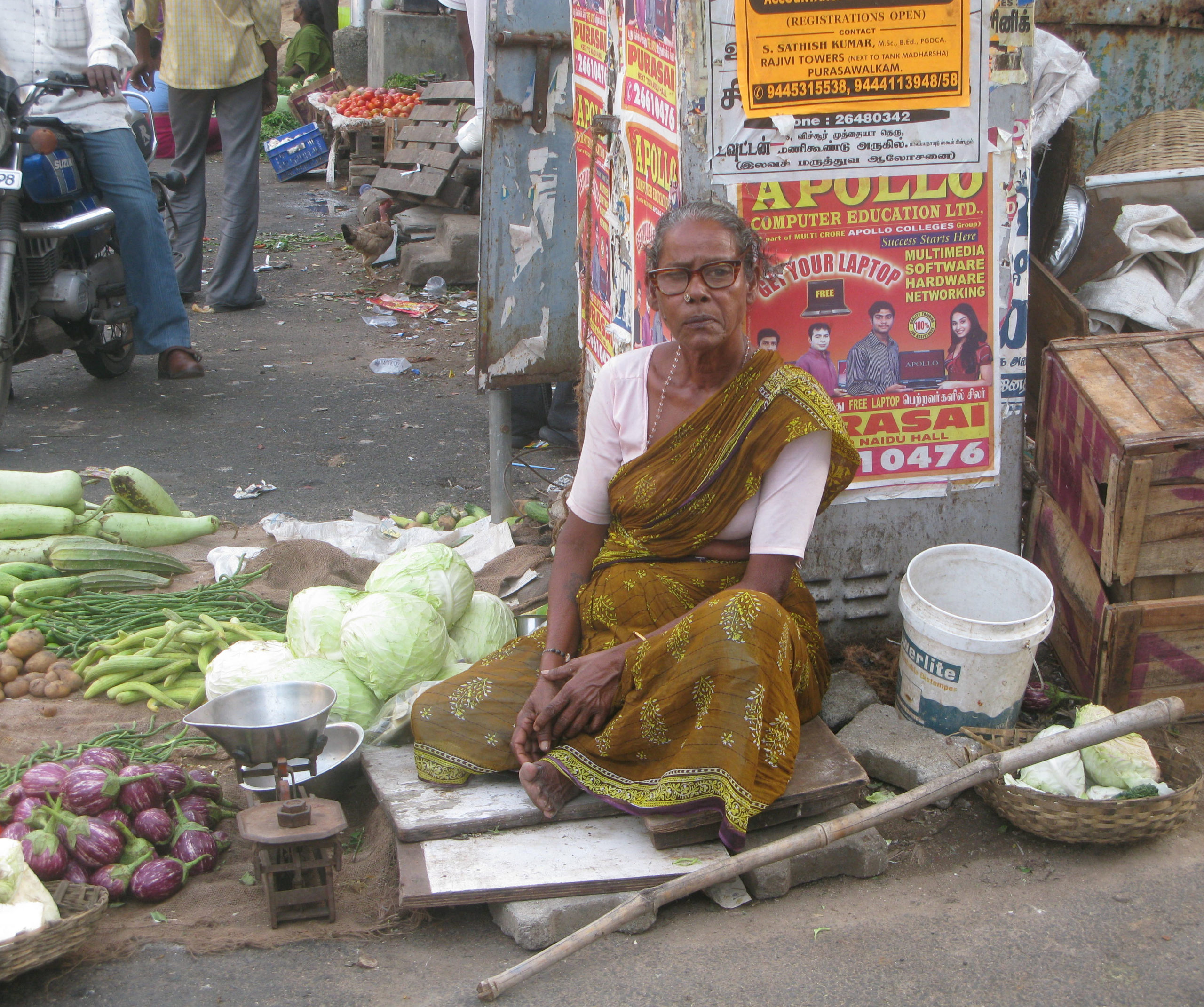Dr Penny Vera Sanso, a Senior Lecturer in the Department of Geography reflects on the COVID-related suffering that will be detrimental to Chennai’s poor.

The expectation is COVID-19 will run wild through the high density low-income settlements that Chennai’s poor are forced to live in. This may yet happen. What is happening is a great deal of COVID-related suffering, including excess deaths, deepening impoverishment and changing intergenerational relations that will force some older people into greater dependency and marginalization and others into more depleting economic engagements.
Currently the greatest threat for people living in low-income settlements is COVID-related impacts. How is this possible?
- First, India is a highly segregated society. Segregated by class, caste and labour conditions, in which 90% of workers have no rights, most are employed on daily or piece rates. There are few points of contact that would provide person-to-person spread between slum dwellers and the ‘flying classes’ who brought the disease to India on flights from Wuhan, UAE, Italy and so on. Further, the longstanding stigmatization of slum dwellers and low caste people as sources of contagion, which underpins widespread Human Rights abuses in India, meant that the people most likely to be carrying the disease, the Middle Classes, shut off all direct contact with those least likely to have it, slum dwellers.
- Second, India implemented a lockdown on the 25 March, when it only had 519 cases, quarantining tourists, banning international commercial flights and suspending train services.
- Third, it established Containment Zones for any buildings or areas with one or more confirmed cases. Containment is backed up with targeted testing and tracing. As of 29 April 2020 there were 170 containment zones across India and 1075 deaths. In this no-one can leave their homes: groceries are delivered through government channels. The lockdown and containment are stringently policed, often heavy-handedly.
For most of the urban poor COVID-19 has brought their economic lives to a standstill. Research undertaken in five Chennai slums between 2007-10, including the 2008 international banking crisis, that translated into a significant economic slow down in Chennai, is instructive. Chennai’s labour market is segregated by age, gender and education, and has until now provided considerable economic space for older people, who occupied areas of the economy that younger people had vacated for higher status, easier conditions and better pay.
People on low, insecure, daily incomes do not earn enough to save. There is no question that after six weeks without work everyone in Chennai’s low-income settlements, whose nutritional status would not have been good, anaemia and malnutrition being endemic, will have cut food expenditures to the bone.
Beyond this, the wider context impinges on people’s health and capacity to seek healthcare. Water shortages and temperatures ranging from 34 deg C to 40 deg C contribute to dehydration and heat stroke. Free health services are centrally located, hence inaccessible for most people, while private doctors and medication need to be paid for. All this in a context where male slum dwellers already have a life expectancy of 5 years less than non-slum dwellers, reflecting globally established social gradients in morbidity and mortality.
For the urban poor starvation, non-COVID-19 sickness and deepening vulnerability are currently the greatest dangers they face; these will drive them back into finding work, often servicing those classes and sectors who comprise the current pool in which COVID-19 swims. Hunger will bring the virus to the slums.
In this world turned upside down, the poor are, currently, much more at risk from excess, COVID-related deaths than COVID-19 itself. Loss of health, assets, jobs, housing and the disruption of social and economic networks beyond their settlements are the immediate impacts of lockdown. There will be mid and long term impacts.
At best mid-term impacts will be relatively short lived, requiring greater labour force participation for everyone in low-income settlements – but not the ‘pull your socks up’ participation that neo-liberal economists like to think will raise household incomes. People of all ages and abilities will be forced onto the labour market, lowering pay rates. Older women and men, a higher percentage of whom are already in paid work than are people aged 15-19, will be forced into even more body depleting hours and conditions on less pay, in a context in which age discrimination in employment and wages is well established. Family and kin networks will develop holes due to the underlying health conditions, deepening nutritional deficits and untreated morbidity under COVID-19 conditions and directly from COVID-19 if it spreads through the slums.
Tamil Nadu is a state with a comparatively low fertility rate. COVID-19’s direct and indirect consequences will sharpen the long-term risks of reducing the size of family networks in the context of weak state support.
Older people with small, depleted or no family, with no or inadequate pensions or who have lost work will find their capacity to cater for themselves or to rely on others significantly constrained. They could well become even more tied into impoverished family networks that increasingly depend on older people’s inputs.
There is no getting away from the need for a realistic income for all people over age 60 and a pension programme that guarantees such.
Irrespective of whether COVID-19 finds spreads through Chennai’s low-income settlements or not, excess COVID-related deaths are a certainty. It will be political will that determines whether these deaths and the pandemic’s long-term impacts on people living in low-income settlements will ever be recognized for what they are: the consequence of how India chooses to distribute its risks across society.
